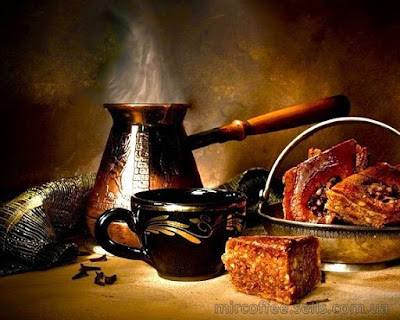Coffee is the second most traded commodity in the world, after oil, with a global production of 1,650 tons in 2015 alone. According to the International Coffee Organization, Brazil is still the largest coffee producer in the world for more than 150 years (> 205 million tons in 2015). Coffee plantations there cover nearly 2.3 times the size of Lebanon. It is followed by Vietnam, Colombia, Indonesia, Ethiopia, India, Honduras and Uganda.
The Yemeni coffee production has declined by about a modest quarter, down from ~ 11,000 tons in 2012 to ~ 7,000 in 2015.
According to data from Euromonitor (2013) for the top 50 state-consuming coffee, the Finnish made it to the top of the list with a consumption of 9.6 kg per year. Only two Arab countries were in the list: Algeria (# 27, 2.6 kg) and Tunisia (# 35, 2.2 kg). The United States, and although it imports the largest amount in the world, was ranked # 22 (3.1 kg).
In a survey of two decades ago (1995), caffeine consumption in European countries (especially Scandinavia) was also the highest in the world. Citizens of Sweden, Norway, the Netherlands, Denmark, Finland, Germany and Austria have consumed between 300 - 400 mg of caffeine a day. By comparison, Arab states consumed relatively small caffeine with higher amounts of tea. The highest consumption of caffeine from coffee was in Algeria, which is ranked # 28 (79 mg of coffee / 5 mg of tea). Tea was superior in the UAE (74 – 87) %, (49 – 112) % in Kuwait, (35 – 67) % in Syria and (14 – 13) % in Saudi Arabia, and as expected, Highest caffeine levels of tea were in Egypt (53 mg) (# 7 worldwide), compared to 5 only mg of coffee.
In the last four years, Saudi Arabia's imports of coffee rose by 10% while the highest percentage increase was in Egypt (90%). And no wonder that imports of coffee in a country like Sudan, which has failed to increase the rate of exploitation of agricultural land that coffee imports rose by 6%.
Arabs do not produce coffee (cardamom too) and not drink or use them more than other nations. Although I thought that the numbers indicate otherwise, it does not seem that the expected link between them is much beyond the historical and emotional side.
This is truly my first well-researched post, I know it's not perfect, but I have put some effort to get the numbers and facts correct. Hope you like it :)
by xcode18
SEARCH TERM :
- Arabic Coffee and Dates
- Arabic Coffee Set
- Arabic Coffee Maker
- Arabic Coffee Recipe
- Arabic Coffee Shop









0 comments:
Post a Comment